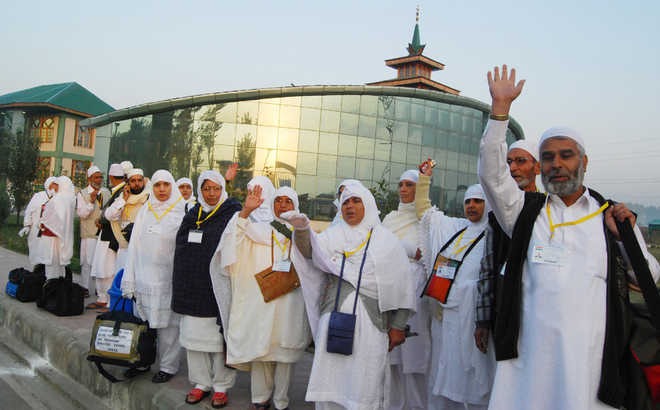The initial group of Hajj pilgrims from Indian-administered Jammu and Kashmir set off for Saudi Arabia on Wednesday, commencing this year’s sacred pilgrimage. Special Hajj flights from India began operating in late May to accommodate 175,000 pilgrims, with 12,000 departing from the Himalayan region, which is a part of the larger Kashmir—a Muslim-majority territory disputed between India and Pakistan.
This year’s number of pilgrims from Kashmir nearly doubles that of 2022, constituting the largest-ever group from the region embarking on this significant spiritual journey—one of the five pillars of Islam. Safina Baig, the chairperson of the Jammu and Kashmir Haj Committee, expressed, “We have the highest quota this year,” as the first batch of 630 pilgrims departed from Srinagar, the main airport in Kashmir. The moment was emotionally charged, as many individuals felt overwhelmed by the opportunity to perform Hajj in their lifetime.
While most of the pilgrims were selected through a draw, exceptions were made for the elderly and women traveling without a mahram (male guardian). Baig explained, “Generally, the selection process happens through a draw, but as a special gesture, we are allowing single women and people above 70 to apply directly without going through the process.” She further added that the Indian government made special arrangements for women without a mahram, ensuring they would stay separately and have dedicated assistants, including a female caretaker.
Shamima Akhter, a 56-year-old widow from the Pulwama district of Kashmir, is one of the 120 women pilgrims from Kashmir traveling alone to Saudi Arabia. The Kingdom lifted the requirement for women to be accompanied by a mahram, allowing them to embark on the journey independently. Akhter expressed her gratitude, saying, “By Allah’s grace, I got the opportunity to travel alone to perform Hajj. This is a good decision to allow single women to travel.”
To fund her Hajj package, Akhter received support from her three daughters, who collectively gathered around $5,000. However, the cost of the trip was more than $1,000 higher compared to other regions in India. Baig, the chairperson of the local pilgrimage authority, raised this concern with the Ministry of Minority Affairs and the Haj Committee of India, explaining that the increased total expenses were due to higher airfare prices from Kashmir. She expressed hope for some assistance for the region’s pilgrims, stating, “Kashmir is a Muslim-majority region, and the government should be more considerate. I feel that the government should provide some relief to the Kashmiri Hajjis. It sends a good message.”
Despite the financial challenges faced by some pilgrims from Kashmir, the departure of this significant number of individuals on the Hajj pilgrimage marks a historic moment for the region. It represents a milestone in their spiritual journey and an opportunity for devout Muslims from Kashmir to come together with fellow believers from around the world in fulfilling this sacred obligation.







